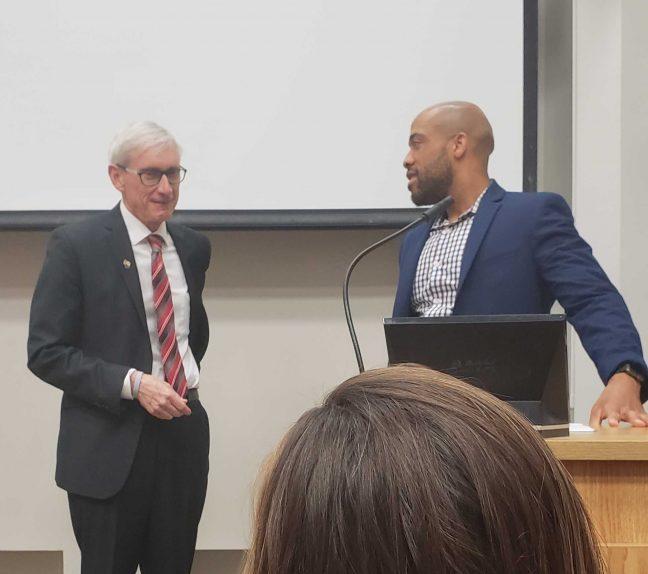April 5, the Fourth District Court of Appeals made their decision on a lawsuit against Gov. Tony Evers and his administration — Evers had planned to release the names of Wisconsin businesses with more than 25 employees where at least two employees have tested positive for COVID-19.
Wisconsin Manufacturers and Commerce filed the lawsuit arguing that Evers should not legally be allowed to release this information to the mass media. The appeals court ruled in favor of Evers, reversing the original ruling back in October.
WMC brought on the lawsuit due to worries over both the personal health privacy of employees and possible defamation to businesses. WMC Tax, Transportation and Legal Affairs director and general counsel Cory Fish said they felt it was important to present this lawsuit because there could be businesses on the list even if they never had an employee with COVID-19 in their building.
According to Fish, employees who only had close contact with someone who tested positive for COVID-19 without actually having a positive test themselves were enough to include the business on the list.
“That doesn’t mean they tested positive and went back to work,” Fish said “They could have been from a company that is represented remote, and they may test positive or had contact with someone who tested positive and never interacted with another colleague or customer.”
Fish stated they believe the release of this information could reveal private health information about employees. To look at this problem, they provided the example of looking at a company with a smaller number of employees.
If Evers released this list and a smaller company was on it, Fish said it wouldn’t be too hard to figure out who had been gone for an extended amount of time.
“Basically, without that person’s consent, [other employees] can gain confidential medical knowledge about them,” Fish said.
Fish said the WMC is disappointed in the court of appeals’ decision, and they will be pursuing an appeal in the Wisconsin Supreme Court. While this appeal is being filed, the injunction disallowing Evers from releasing the list of business names remains in place.
This opens up the question of whether or not the information will still be relevant as this lawsuit is pursued further. As time goes on, COVID-19 vaccinations have become more accessible, and the U.S. rates of COVID-19 have slowly decreased.
The WMC is also concerned that releasing this list could actually increase COVID-19 cases in Wisconsin.
“If people are afraid their name is going to get out there and they could face potential discrimination or mistrust from their colleagues and friends, then they won’t tell contact tracers when they get the phone call that they have the virus,” Fish said. “This can then actually lead to more community spread.”
University of Wisconsin School of Journalism and Mass Communication professor emeritus and expert on privacy and access to information and government records Robert Drechsel said he could not think of a past example where the government attempted to release aggregate data to the public such as this.
“It is much unusual to see the government being on the side of defending the release of information,” Drechsel said. “Usually, it is flip-flopped and it’s the media or citizens suing the government to release information. It is not the typical situation.”
Drechsel said there are various statutes that specifically prohibit the release of certain types of information, private health information being one of them. At both the state and federal level there are laws in place that prohibit the release of individual medical records. There aren’t, however, laws in place specifically stating that information has to be released.
Drechsel said this lawsuit falls into the ethical realm not only for Evers releasing the information, but also for any mass media that consider sharing the list on their platforms.
“If the state Supreme Court says they are not interested in hearing the case, then that’s the end of it and the information becomes publicly available,” Drechsel said. “Then media entities who are contemplating what to do with the information are going to have to make ethical decisions about why they will or will not themselves publish that kind of information.”
Drechsel also said this lawsuit may come down to whether or not WMC has the authority to bring it to court. The courts could potentially not even get to the debate on Evers releasing this information and instead discuss if WMC is the right group to argue the case they have brought up.
As Drechsel pointed out, there has been no evidence of defamation against businesses in the past year due to COVID-19. During the last year, several counties in Wisconsin and other states have already been releasing information on businesses that had COVID-19 exposures. There has not been any large impacts on specific businesses due to the release of this information.
The Badger Herald reached out to Evers’ office for a comment but did not receive a response.


